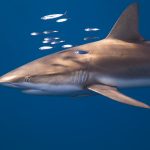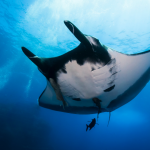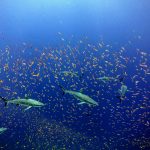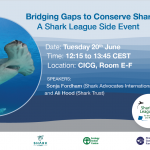An analysis of ICCAT Parties’ policies for CITES-listed Atlantic elasmobranchs
Analyzing pivotal international agreements such as the Convention on International Trade in Endangered Species (CITES) and the International Commission for the Conservation of Atlantic Tunas (ICCAT), the Shark League’s latest analysis, “Bridging the Gaps that Hinder Shark Conservation,” scrutinizes the efficacy of existing conservation initiatives and recommends essential improvements.
Continue reading New Report: Bridging the Gaps that Hinder Shark Conservation







